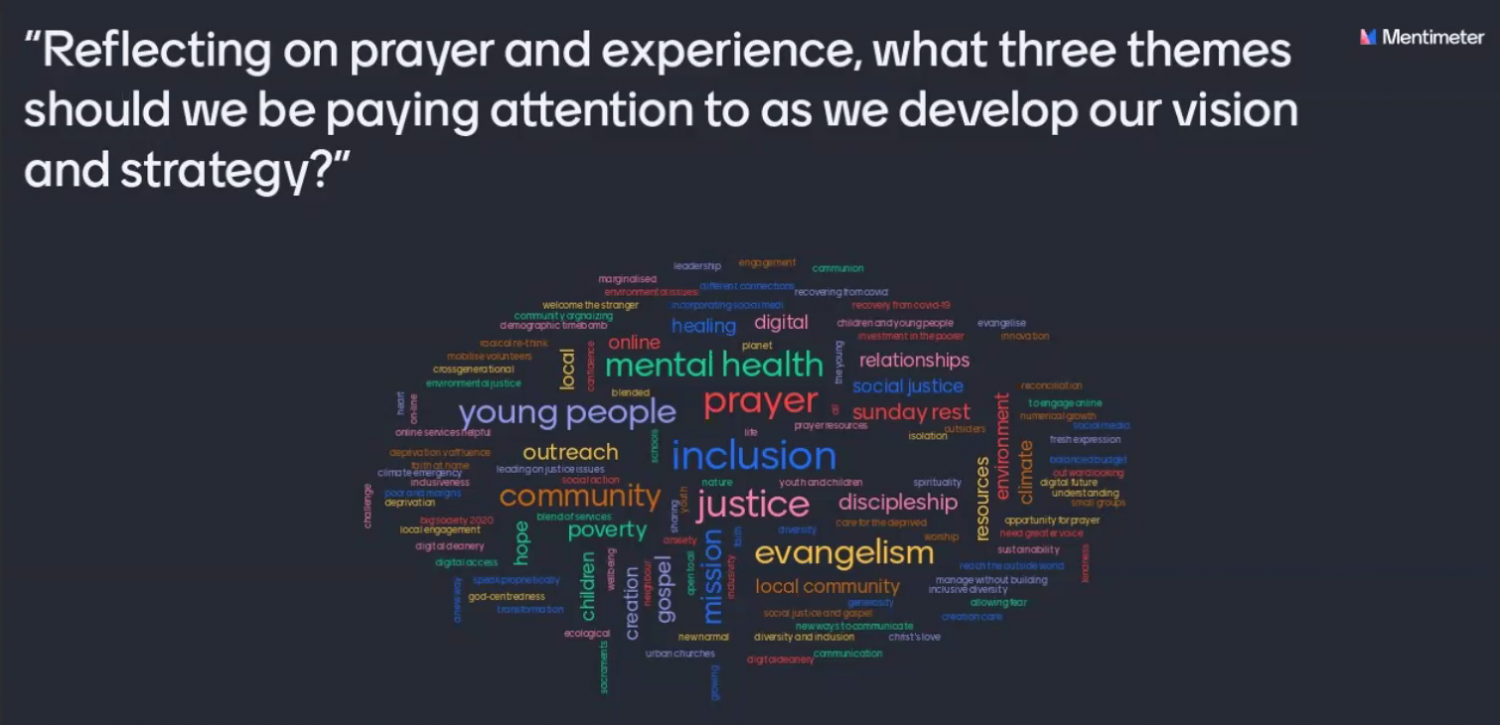
The experiences of the last four months have had an extraordinary impact on individuals, families, communities and society. The Church has felt that impact both in its own life and its integration into society at all levels. We cannot yet gauge how enduring the various kinds of impact will be.
We are called to follow Christ and proclaim the Gospel afresh in all generations and seasons. This season of pandemic, and the restrictions that have been imposed to contain it, have called out a diverse range of experiences and responses. It has created new opportunities, connections and ways of being church; but taken away places, practices and people.
As individuals, church communities and a diocese as a whole, we have sought to be attentive to our responses, what it reveals about who we are and who we discern God is calling us to be. That is why Bishop Viv asked all our church communities to reflect after Easter on a range of questions. The questions were simply:
- What has been going well?
- What do you feel you have lost?
- What have you learnt?
The hope was that the responses would, in part, enable us to see what is particular about the values and priorities of the Diocese of Bristol, what sort of diocese we are and want to be, and what new ways are already emerging.
It is also why the Diocesan Synod came together for the first time since the pandemic to pray in praise, lament and hope. Synod members were asked in the final session to reflect on what they might be hearing from God.
Parishes expressed a wide range of experiences in their feedback to Bishop Viv. For many, Covid19 had created a new and different kind of community, neighbourliness, commitment to place and opportunities for service, as well as requiring new ways of relating, communicating and worshipping. It has also enhanced collaboration between churches.
Inevitably, the loss of face to face contact, chances for relational evangelism, worshipping together in person, sharing the Eucharist and being in their place of worship was significant (the loss of building particularly but not exclusively felt in more rural communities). Although many new people have engaged, many are not joining in the ways churches have been worshipping. Many lay people have not been able to serve practically in the ways they would normally while others have been heavily relied upon. Parishes with significant lettings or incidental income have lost it. Not being able to minister and be with the dying and conduct a normal form of funeral ministry has been particularly painful.
However, encouraging experiences have been the ability to change quickly; focus on the essentials of ministry and mission; for some, be forced to be a dispersed church without a building; for others, be freed from meetings and have more time to go deeper has been encouraging. As well as becoming more digitally skilled, many parishes also discovered that they needed a better contacts list!
We have faith that we will recover some losses and there will be new Christians. However, we are realistic that there has been a variety of negative impacts and there are risks of further. Therefore we need to pray, plan and work together to seek to sustain and grow our mission.
The experience of Covid-19 has brought the Diocese to a different place as it looks to the future. The work to support vision and values, and the plans we put in place to support them, is now continuing, attentive to the place we have been brought to and to God. Bishop Viv has put forward a set of questions for us all to answer as we think about our own church communities:
- Is this community enabling people to be formed in the likeness of Christ?
- Are you going out to tell the good news?
- Are you serving your community in partnership with others?
- How is your life being resourced?
In the autumn, there will be much further engagement at all levels to discern the way ahead.